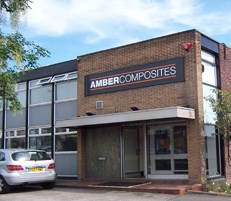TenCate's acquisition of Amber Composites a sensible surprise
TenCate, known for years as a thermoplastics specialist, is signaling more and more that it wants to move into new markets with new materials.

TenCate raised a few eyebrows this week with the Jan. 16 announcement that it had acquired U.K.-based Amber Composites for an undisclosed sum.
On consideration, however, the move makes sense, and it's a good one for TenCate and Amber. TenCate, a thermoplastics composites specialist with extensive experience in aerospace, has signaled over the last year or so that it wants to move into other markets and materials. In May 2012, TenCate acquired Canada-based thermoplastics composites supplier Baycomp, giving TenCate exposure to the automotive, oil and gas, electronics and industrial markets in the process. Then, in October 2012, TenCate announced an alliance with BASF to develop thermoplastic composites for high-volume automotive manufacturing.
The only ingredient missing from the TenCate portfolio was thermosets, and TenCate got that in Amber Composites. Amber's been in the composites business since 1988, making prepreg, core and fabric for auto racing, aerospace and other applicatons. But it wasn't until 2007, when the company was acquired by a group of investors led by American Jonathan McQueen, that Amber began several years of aggressive product development and market expansion, increasing the company's profile in the composites industry. Amber also boosts TenCate's presence in the European composites market.
McQueen, CW has learned, will phase out at Amber Composites and focus his efforts on the operation of TRB Lightweight Structures (Huntingdon, U.K.), a honeycomb core sandwich structure manufacturer acquired by McQueen and his investors in 2007 at the same time as the Amber acquisition. If the success of Amber is a sign of McQueen's operational prowess, then it will be worth keeping an eye on TRB.
Related Content
-
Plant tour: Teijin Carbon America Inc., Greenwood, S.C., U.S.
In 2018, Teijin broke ground on a facility that is reportedly the largest capacity carbon fiber line currently in existence. The line has been fully functional for nearly two years and has plenty of room for expansion.
-
The potential for thermoplastic composite nacelles
Collins Aerospace draws on global team, decades of experience to demonstrate large, curved AFP and welded structures for the next generation of aircraft.
-
Infinite Composites: Type V tanks for space, hydrogen, automotive and more
After a decade of proving its linerless, weight-saving composite tanks with NASA and more than 30 aerospace companies, this CryoSphere pioneer is scaling for growth in commercial space and sustainable transportation on Earth.















.jpg;maxWidth=300;quality=90)
